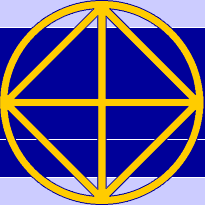University of the People
The United Nations have just officially announced the “University of the People” launched in April 09. It is a new online university, which for the moment is still free, but later will charge some modest study fees to maintain the university. The UN Global Alliance for Information and Communication Technology and Development (GAID) wants to show how an online university can improve the formation situation world-wide with modern information and communication technology, as the German online magazine Heise.de writes.
While up to now many people on the planet cannot attend a university, the Web 2.0-technologies now allow students to study at home, using open source technologies and open course material as well as e-learning methods and methods of peer to peer teaching. They offer classes with 15 – 20 students each with one lecture per week and a weekly work and learning schedule of at least 8 hours.
Up to now they have about 200 students from 52 countries in computer science and economics. For the first semester they don’t take more than 300 students. In the course of 4 years they want to extend it to 15’000 students. The final exam will correspond to that of a Bachelor for the moment, they hope to be accredited as a full university in the next years.
A very inspiring development.

Info-kiosk in front of the Swiss Federal Palace during renovation



April 22nd, 2011 at 11:37 pm
University of the People is a wonderful concept, but its implementation leaves much to be desired. I know this first-hand–I am currently enrolled at the university. There are many problems with the de facto learning experience at the university:
1. No enforcement of the Academic Honesty and Integrity policy. Plagiarism is covered in the first two required courses at the university, yet it is the rule rather than the exception in the discussion forums. It is also commonplace in assignments that require explanations (e.g. non-computational questions/problems). In fact, plagiarism is so prevalent that if one brings up the fact that a fellow student’s submission is completely cut-and-pasted from Wikipedia, he is likely to be told that “this is the way we do it in all our classes.”
2. Flawed assessment model. Courses consist of discussion forums, learning journals, quizzes, assignments, and a final. The final, usually a multiple choice test of 5-10 problems to be completed in one hour (and usually completed in 20 minutes), is worth 40% of the student’s grade. At no other university I have attended did any course place so much weight on an exam that did not challenge the student nor represent the material covered throughout the quarter. The discussion forums are of questionable worth for the reasons stated above. On top of these issues, the lowest one or two scores is dropped from among the graded areas (DFs, assignments, etc.), allowing a student to forgo 1/9 to 2/9 (or more) of a quarter’s worth of work (excluding the final) and suffer no penalty. Such non-participation would likely reduce a student’s grade by one or two letters at a real university. This is related to the courses’ inadequate and un-enforced Participation policy.
3. Lack of uniformity in grading. Peer assessment is part of the learning model. Unfortunately, you are just as likely to have a student who himself does not understand the material grading your assignment (this makes a huge difference, even though solutions are provided) as you are another student whose assignment received a 20 and is now out for blood. This is also a problem in the discussion forums.
I want the university to succeed, but more than that I want a degree from this university that actually means something. As I note the lack of quality in my fellow student’s work, the lack of effort put into plagiarized posts and assignments that will, regardless, likely get an A, I find it hard to believe that even 30% of UoP’s students could cut it in a real university. I don’t see how, with things the way they are now, University of the People could possibly become accredited. Sad thing is, there are UoP students that are now more than half-way done with their four-year degree who have no notion of what an actual education is and who would probably flunk out of their first year at any two-year college.
I can only hope that someone at UoP wakes up and appreciates the sad state of its affairs, the joke that UoP, in practice, has become and decides to do something about it.